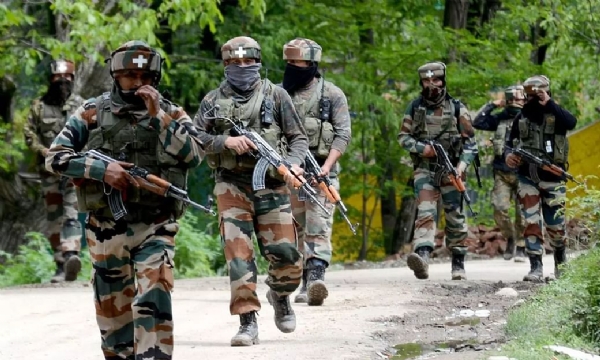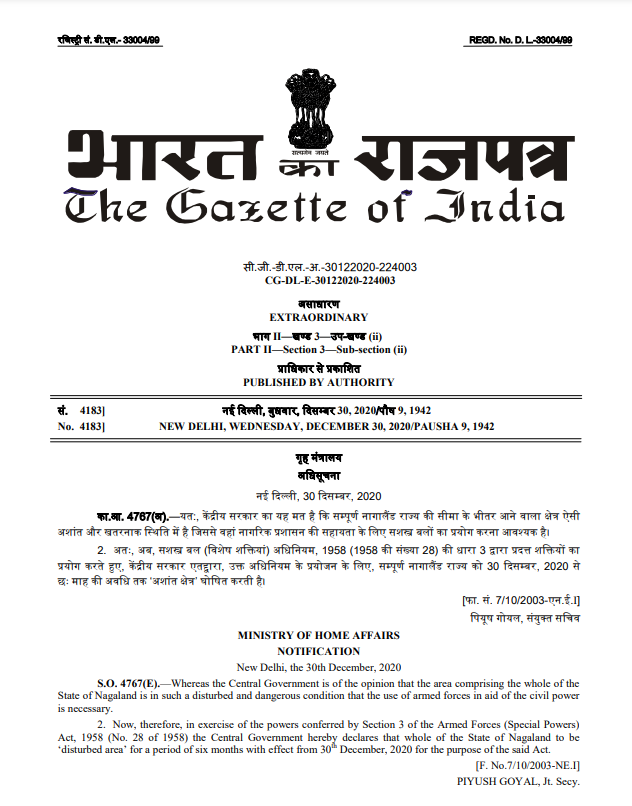Govt declares Nagaland as ‘Disturbed Area’ under AFSPA for more 6 months
31 Dec 2020 11:39:31
New Delhi, December 31: The Home Ministry has declared the entire state of Nagaland as disturbed area for another six months under the Armed Forces Special Powers Act (AFSPA) in Nagaland. The latest order is in effect from today.
In a released notification, MHA said, "Whereas the Central Government is of the opinion that the area comprising the whole of the State of Nagaland is in such a disturbed and dangerous condition that the use of armed forces in aid of the civil power is necessary."

"Now, therefore, in the exercise of the powers conferred by Section 3 of the Armed Forces (Special Powers) Act, 1958 (No. 28 of 1958) the Central Government hereby declares that whole of the State of Nagaland to be 'disturbed area' for a period of six months with effect from December 30, 2020, for the said Act," it said.
According to the Home Minister, the decision was taken in the wake of violent activities of the various terrorist outfits that have been going on in various parts of the state which necessitated the action for the convenience of the security forces operating there.
It should be noted that for nearly six decades Nagaland has been under the AFSPA. It said, therefore, in the exercise of the powers conferred by Section 3 of the Armed Forces (Special Powers) Act, 1958, the Central government declares that whole of the State of Nagaland to be disturbed area for a period of six months.

Apart from Nagaland, the government also declared Assam, Arunachal Pradesh, and Manipur as disturbed areas under the Armed Forces (Special Powers) Act, 1958, (AFSPA) for six months.
When a state or region declared is a disturbed area?
When differences in the communities arise on the basis of race, religion, language, region, and caste and an anarchic situation arises then the state or central government is entitled to declare that area as "Disturbed Area Act".
Under the Armed Forces Special Powers Act (AFSPA), 1958, Indian Armed Forces are granted special powers to maintain public order in "disturbed areas". AFSPA empowers security forces to conduct operations anywhere and arrest anyone without any prior warrant.